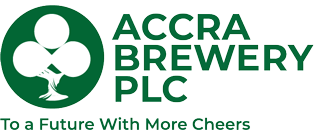ABL EXTENDS ALCOHOL & PREGNANCY PROGRAMME TO KATH
27th November 2017
Kumasi, Ghana. Nov., 2017: Accra Brewery Ltd. (ABL) has extended its Alcohol and Pregnancy Programme to the Komfo Anokye Teaching Hospital (KATH) as part of its efforts to create a Healthier World.
The Programme sensitises pregnant women on Foetal Alcohol Spectrum Disorders (FASDs), which refer to a group of conditions characterised by facial deformities, behavioural, and learning problems that occur in persons whose parents, especially their mothers, consumed alcohol while pregnant or preparing for pregnancy.
The Programme, organised in partnership with the reproductive health Outpatient Departments (OPDs) of major health facilities across the country, has so far impacted over 3,000 women.
Creating a Healthier World
Commenting on the rationale for the Programme’s extension, Ms. Adjoba Kyiamah, ABL’s Director of Legal &Corporate Affairs, said, ‘for 4 years now, we have collaborated with the Korle Bu Teaching Hospital; 37 Military Hospital; Police Hospital; Tema General Hospital; Kaneshie Polyclinic; and the Koforidua General Hospital. Extending the Programme to the Komfo Anokye Teaching Hospital (KATH) was only a matter of time. And we are elated to be here as it moves us a step closer to fulfilling our Dream of bringing people together for a better world’.
‘The success of previous sensitisation exercises under the Programme, most recently the one held at the Police Hospital in September this year, as well as other initiatives such as the Adabraka Health Screening and our commemoration of World AIDS Day, has only served to affirm our commitment to creating a Healthier World. This is a company-defining commitment; one we would never renege on at the risk of losing our sense of purpose’, Ms. Kyiamah concluded.
Ms. Juliana Bosomprah, KATH’s Deputy Director of Nursing Services, Obstetrics & Gynaecology Department, extended her appreciation to ABL for leading the charge against FASDs, stressing that by this act, the company had gone out of its way to safeguard the health of mothers and unborn babies.
Ms. Bosomprah, who also facilitated the sensitisation session, introduced participants to such topics as the effects of alcohol consumption on the mother and unborn child, as well as its effects on the developing foetus. She mentioned that ‘unborn babies absorb alcohol when it enters the blood stream which causes irreparable damage to the foetus’s vulnerable and developing cells and nervous system’.
She continued that excessive alcohol consumption can even cause miscarriages, stillbirths, and premature births, and strongly admonished participants to stay away from alcohol prior to and during pregnancy.
Ms. Bosomprah was optimistic that the knowledge dispensed will help pre-empt and eventually mitigate the medical, social, and economic repercussions bedevilling families suffering from the far-reaching effects of FASDs.
Grace Adjabeng, a participant in the third trimester of her first pregnancy, expressed her resolve to adhere to the invaluable lessons accrued from the Programme, as well as educate other pregnant women within her social circle on the dangers of alcohol consumption prior to and during pregnancy.


















